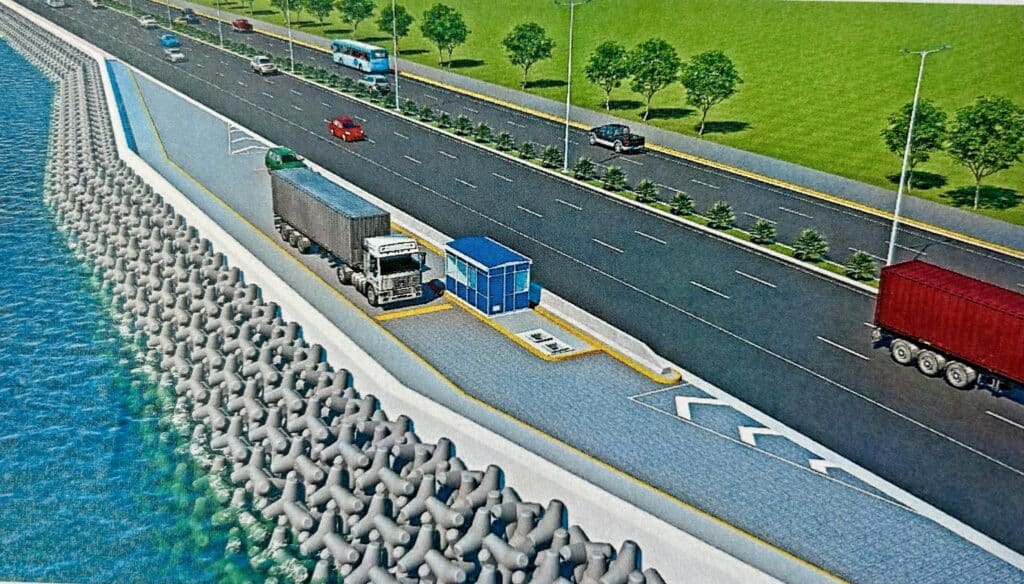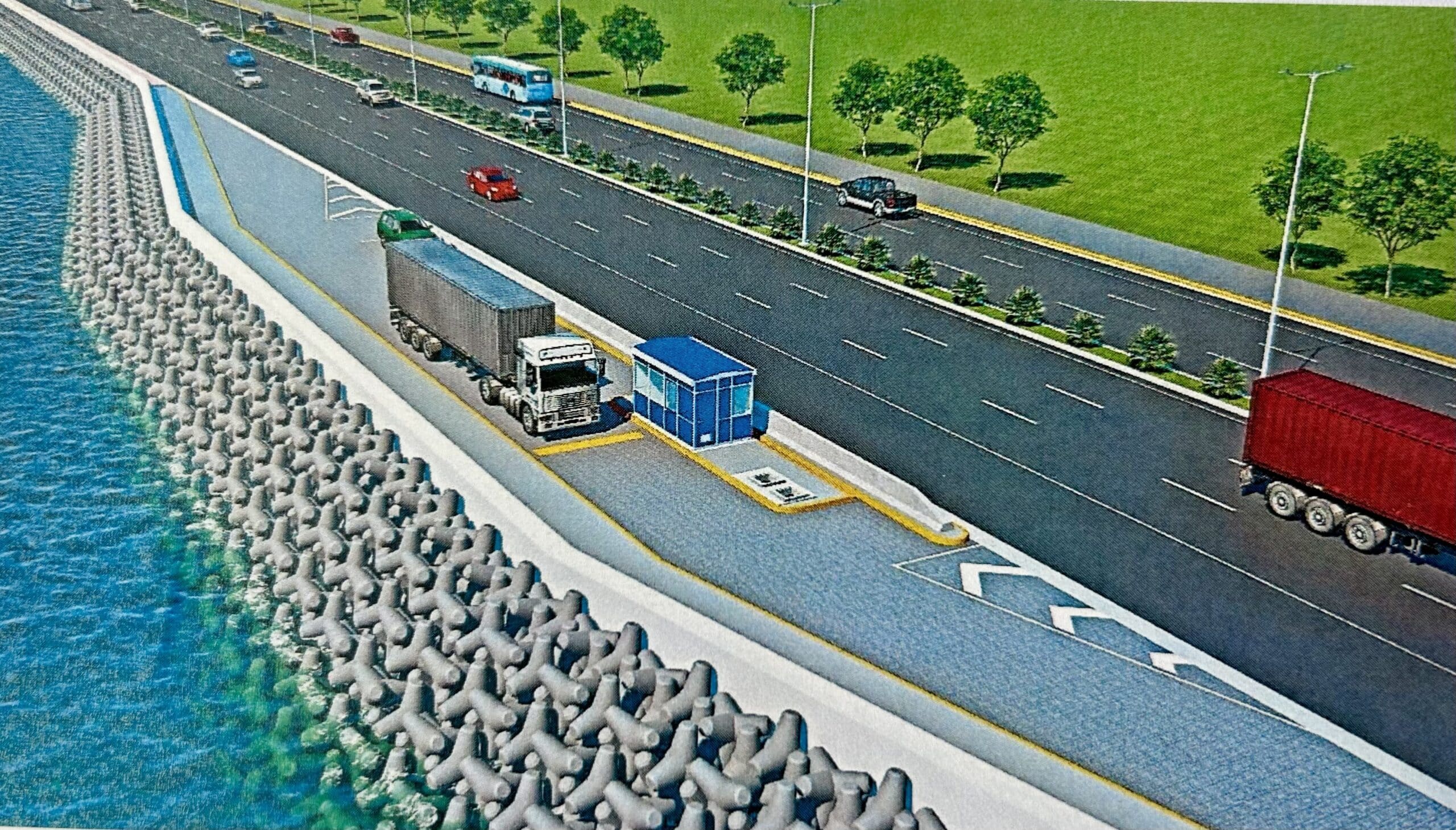
A groundbreaking ceremony for a new weighbridge station was held on Friday, September 13. This facility aims to help reduce the issue of overloaded trucks and trailers. | Photo by: Cebu Cordova Link Expressway Corporation (CCLEC)
CEBU CITY, Philippines – A weighbridge station will soon be installed along the Cebu South Coastal Road (CSCR) to help regulate overloaded trucks and trailers, which have been causing traffic jams and road damage.
The new weighbridge station facility is designed to monitor overloaded vehicles and is expected to ensure the integrity of the 8.9-kilometer Cebu-Cordova Link Expressway (CCLEX) and the surrounding roads, including CSCR and the South Road Properties (SRP) viaduct.
“This project will be valuable for everyone. It will smoothen traffic on the CSCR and help maintain the road. Overloaded trucks can be intercepted, preventing them from proceeding to CCLEX or the coastal road,” said Engineer Allan Alfon, president and general manager of the Cebu Cordova Link Expressway Corporation (CCLEC) during the groundbreaking ceremony on Friday, September 13.
The construction has already been awarded to a contractor and is expected to be completed in a few months.
READ MORE:
CSCR-El Pardo Road Intersection with new AI traffic system opens
Cebu South Coastal Road tunnel repair, rehab to start on July 18
Authorities guard Bulacan highways vs overloaded trucks
Lawyer Kent Jongoy, assistant head of the Cebu City Traffic Office (CCTO), noted that the facility would play a crucial role in preventing overloaded vehicles from causing breakdowns that lead to traffic congestion.
He explained that, as of September 12, they had recorded 697 cases of disabled vehicles penalized under City Ordinance 718, with 80 percent involving vehicles with more than four wheels.
“It’s highly publicized because trailer trucks breaking down cause significant roadblocks, sometimes lasting up to half a day… With the weighbridge, we can prevent incidents like last year’s, when an overloaded trailer truck carrying pipes broke down in the middle of the coastal road,” Jongoy said.
Jongoy also noted that the weighbridge will complement their efforts to manage traffic in the SRP area, especially during peak hours.
He advised truck operators and motorists to ensure their vehicles were in good condition and to plan their trips accordingly to avoid causing delays.
The weighbridge facility aligns with Republic Act 8794, also known as the Anti-Overloading Act of the Philippines, which penalizes trucks and trailers carrying loads beyond their prescribed gross vehicle weight.
Trucks are not allowed to carry loads exceeding 13,500 kilograms per axle, and violations carry a fine of 25 percent of the motor vehicle user’s charge.
Moreover, Acting Cebu City Mayor Raymond Alvin Garcia emphasized public safety, particularly for motorists driving near large trucks. He noted that overweight trucks could break down and damage roads, making it essential to check their weight before they enter.
Garcia further mentioned that the local government, in partnership with CCLEC, would provide additional support by deploying a dedicated team to manage the facility.
The P70-million project is set to start within days once all necessary permits are secured. In close coordination with the Department of Public Works and Highways (DPWH) and the Cebu City government, the CCLEC will fast-track its implementation.
“We aim to complete the facility in a few months and ensure that it’s operational as soon as possible,” Alfon added.
Alfon further noted that the weighbridge would also address the issue of overloaded trucks struggling with U-turn slots along the coastal road. By intercepting these vehicles at the weighbridge, they could be redirected before reaching the CCLEX structure or the narrow U-turn slots.
Jongoy also hopes for future support from the Land Transportation Office (LTO) to set up a station at the SRP entry, not only to inspect the condition of vehicles but also to verify necessary documents. He also suggested a composite team from CCTO, LTO, and LTFRB for more effective enforcement.
Read Next
Disclaimer: The comments uploaded on this site do not necessarily represent or reflect the views of management and owner of Cebudailynews. We reserve the right to exclude comments that we deem to be inconsistent with our editorial standards.

